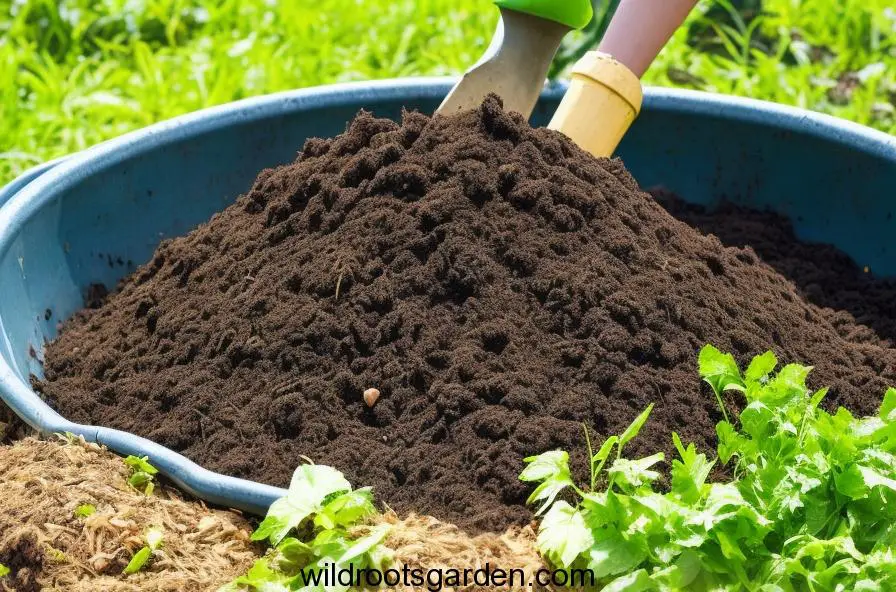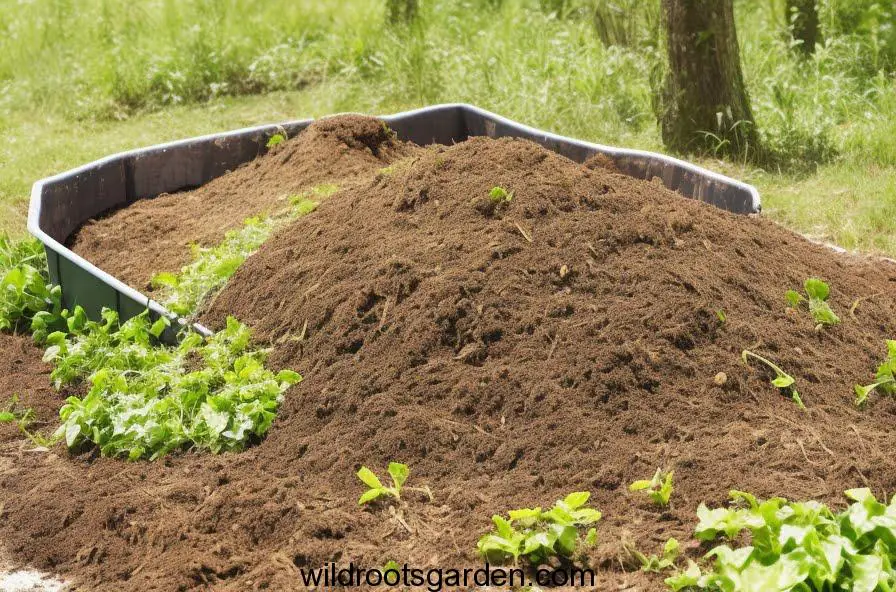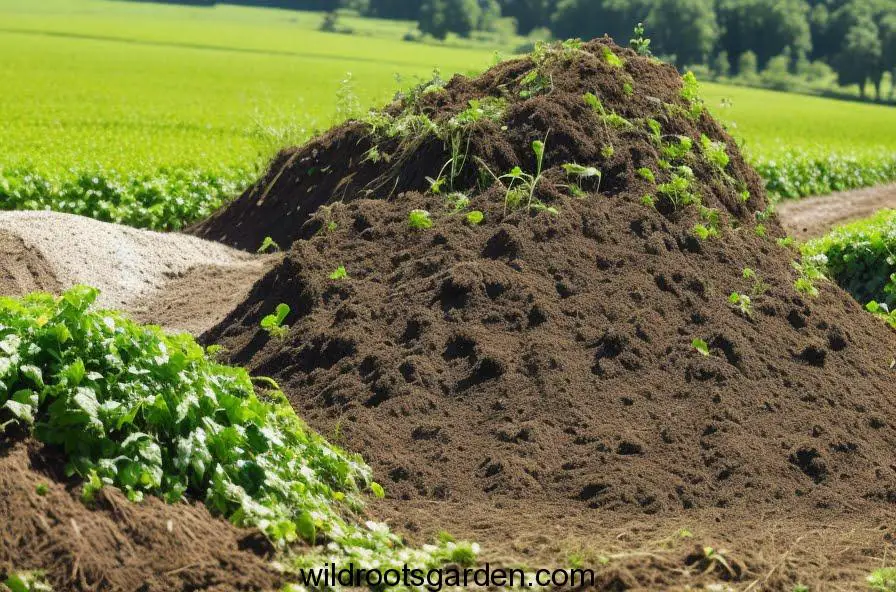Compost for Vegetable Garden. Welcome to the world of composting, where leftover food from restaurants and yard trash combine to produce a miraculous fertilizer for your vegetable garden. Natural recycling occurs through compost, which has a variety of advantages over conventional fertilizers. The 13 + astounding benefits of utilizing compost in your vegetable garden will be covered in this article, along with advice on how to make the composting process effective and fruitful. Using the power of compost will surely improve your gardening skills, regardless of how experienced you are or how new you are to gardening.
JUMP TO TOPIC
- 1 The Basics of Compost
- 2 1. Soil Enrichment
- 3 2. Improved Soil Structure
- 4 3. Enhanced Nutrient Retention
- 5 4. Balanced pH Levels
- 6 5. Weed Suppression
- 7 6. Disease Resistance
- 8 7. Environmentally Friendly
- 9 8. Cost-Effective
- 10 9. Encourages Beneficial Organisms
- 11 10. Reduced Soil Erosion
- 12 11. Sustainable Gardening
- 13 12. Increases Crop Yields
- 14 13. Enhances Flavor and Nutrition
- 15 FAQs About Compost for Vegetable Gardens
- 16 Embrace the Composting Journey
The Basics of Compost
Let’s first examine the advantages before moving on to the fundamentals of composting. The final result of organic matter’s natural decomposition is compost. It is made up of nutrient-rich humus, a black, crumbly material that is extremely beneficial to the soil. Vermiculture, compost tumblers, and backyard composting are just a few of the methods for composting that are available. Let’s now examine the additional 13+ reasons why compost is essential for your vegetable garden.
1. Soil Enrichment

Compost’s ability to improve the soil is one of its main advantages. The addition of compost provides crucial nutrients for plant growth, such as nitrogen, phosphorus, and potassium. Compost’s slow-release properties ensure that your vegetable plants receive a consistent supply of nutrients, fostering healthier and more vigorous development.
2. Improved Soil Structure
Compost improves the texture and structure of soil by acting as a soil conditioner. It creates a favorable environment for plant roots to flourish by enhancing soil drainage, aeration, and water retention. Your vegetable plants will benefit from having better access to oxygen and moisture, which will result in stronger root systems.
3. Enhanced Nutrient Retention

Compost aids in the retention of nutrients in the soil, avoiding their loss due to heavy precipitation or overwatering. Compost ensures that your vegetable plants can access the nutrients they require for growth, decreasing the need for extra fertilizers. This is done by enhancing nutrient retention.
4. Balanced pH Levels
For plants to flourish as best they can, the soil’s pH levels must be kept at the proper values. As a natural pH buffer, compost helps to maintain a balance between the acidity and alkalinity of the soil. This equilibrium makes sure that your vegetable plants have easy access to crucial nutrients, boosting their general health and vitality.
5. Weed Suppression
In vegetable gardens, weed development is a regular annoyance that compost can help control. Compost acts as a barrier that prevents weed seed germination and growth when used as mulch. You may save time and energy by using this natural weed management strategy.
6. Disease Resistance
Healthy soil leads to healthy plants, and compost plays a significant role in boosting plant immunity. The nutrients and beneficial microorganisms present in compost help plants fend off diseases and pests more effectively, reducing the need for harmful chemical treatments.
7. Environmentally Friendly

Using compost in your vegetable garden is an environmentally responsible choice. Composting reduces the amount of organic waste sent to landfills, where it would produce harmful greenhouse gases. By composting at home, you contribute to reducing your carbon footprint and promoting sustainability.
8. Cost-Effective
Composting gives a less expensive alternative to fertilizer purchases, which can be expensive. You can make compost that is rich in nutrients for nothing by recycling yard trash and kitchen leftovers. Long-term savings are made possible by this economical method, especially if you have a sizable vegetable garden.
9. Encourages Beneficial Organisms
By promoting beneficial organisms, compost helps your soil develop a vibrant ecosystem. In soil that has been enhanced with compost, earthworms, bacteria, fungi, and other microorganisms thrive. These organisms help improve soil fertility by decomposing organic debris and assisting in the cycling of nutrients.
10. Reduced Soil Erosion
Compost can make all the difference in locations where soil erosion is a problem. The ability of compost to strengthen soil structure and hold onto moisture aids in preventing erosion, keeping your soil in place during torrential downpours or windstorms.
11. Sustainable Gardening
Composting is a fantastic complement to sustainable gardening methods. It completes the waste cycle and fosters a circular economy in your garden. Composting shows your dedication to minimizing environmental damage and fostering a greener world.
12. Increases Crop Yields

Compost, with all the advantages it provides, invariably results in higher crop yields in your vegetable garden. You will have a plentiful supply of fresh produce thanks to healthier plants, balanced nutrients, and enhanced soil structure.
13. Enhances Flavor and Nutrition
The flavor and nutritional value of your crops are not the only benefits of compost. Your homegrown vegetables will taste better and have greater health advantages when the plants are well-fed, which results in more tasty and nutrient-rich crops.
FAQs About Compost for Vegetable Gardens
Can I use kitchen scraps for composting?
Absolutely! Kitchen scraps like fruit and vegetable peels, coffee grounds, and eggshells are excellent composting materials. However, avoid composting meat, dairy, and oily items, as they may attract pests.
How often should I add compost to my vegetable garden?
For optimal results, add compost to your garden at least once a year, ideally during the spring planting season. You can also apply compost as a top dressing during the growing season to provide a nutrient boost.
What is the ideal composting ratio?
The ideal composting ratio is a mix of “green” nitrogen-rich materials (e.g., kitchen scraps) and “brown” carbon-rich materials (e.g., dry leaves). Aim for a balanced 50:50 ratio to facilitate the composting process.
Can I use compost as a mulch?
Yes, compost makes an excellent organic mulch. Apply a layer of compost around your vegetable plants to conserve moisture, suppress weeds, and add nutrients to the soil.
How long does it take to make compost?
The time required for composting varies depending on factors like temperature, moisture, and the size of the compost pile. In general, it can take anywhere from a few months to a year to produce finished compost.
Is composting smelly?
When done correctly, composting should not produce foul odors. Proper aeration and balancing of the composting materials can help avoid unpleasant smells.
Embrace the Composting Journey
The additional 13 benefits of compost for your vegetable garden are simply amazing, in my opinion. Composting is a game-changer in the horticulture industry, benefiting the soil by enhancing it and supporting sustainable growing techniques. Composting allows you to enjoy better, healthier vegetables while simultaneously helping to make the world greener and more sustainable. So dive into the realm of composting and see the magic your vegetable garden may achieve.


